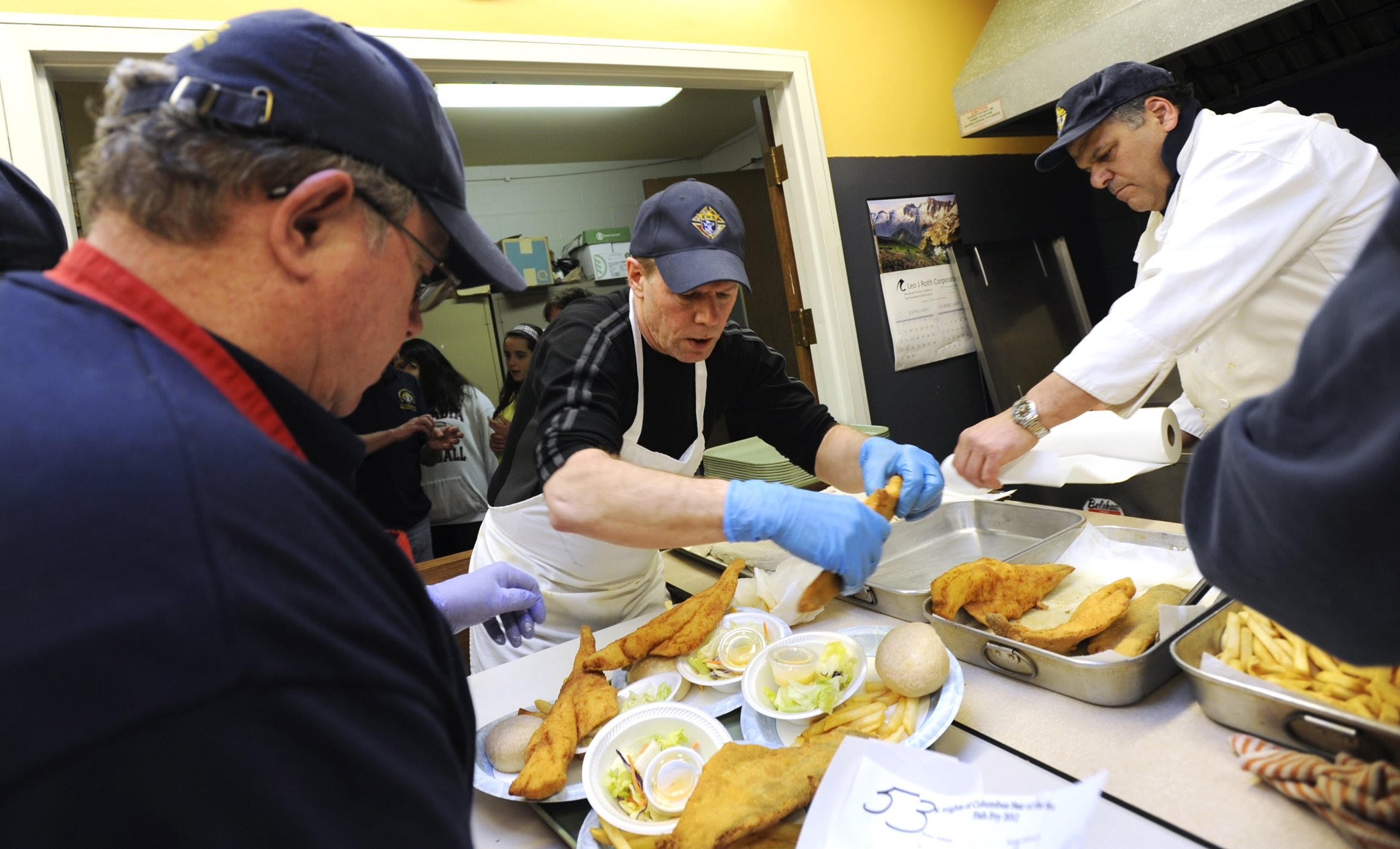
WASHINGTON — The Catholic tradition of abstaining from meat on Fridays during Lent is a common practice that some say should continue all year.
And if that happens, Catholics would be returning to an ancient tradition that, as many point out, never really went away but was only modified in different regions.
According to canon law, all Catholics who are able should fast and abstain on Fridays throughout the year to commemorate Christ’s passion, except when a solemnity falls on that day.
But another canon law also permits a national conference of bishops to “determine more precisely the observance of fast and abstinence as well as substitute other forms of penance, especially works of charity and exercises of piety, in whole or in part, for abstinence and fast.”
And in 1966, the U.S. bishops did just that when the National Conference of Catholic Bishops issued a pastoral statement that said U.S. Catholics were allowed to seek alternate forms of penance on Fridays but that whenever possible, they should continue to abstain from meat on Fridays throughout the entire liturgical year. Fridays were singled out to commemorate the day of Christ’s death.
“We hereby terminate the traditional law of abstinence binding under pain of sin as the sole prescribed means of observing Friday,” the bishops said.
And in 1984, the bishops of England and Wales came to the same conclusion, but in 2011 they brought back the practice, stating that they wished to reestablish “the practice of Friday penance in the lives of the faithful as a clear and distinctive mark of their own Catholic identity.”
A study last year by the University of Cambridge in England noted that only about a quarter of Catholics in England and Wales changed their food habits after the bishops’ announcement. However, that alone saved more than 55,000 tons of carbon each year.
The researchers said that in terms of carbon dioxide emissions, that would be equivalent to 82,000 fewer people taking a return trip from London to New York over the course of a year.
With that kind of success, they went on to say that if more Catholics followed the practice of not eating meat one day a week all year, it could significantly impact climate change. They said, for example, if U.S. Catholic bishops brought back no-meat Fridays throughout the year, the environmental benefits would likely be 20 times larger than in the U.K.
The study’s findings were acknowledged by Catholic Church leaders in England and Wales, who urged all Catholics last year to “refresh their weekly observance of Friday abstinence by refraining from eating meat on that day. In this way, we dedicate to God the pressing need for us all to live more simply.
“In abstaining from meat on Fridays, we also act in solidarity with those who face hunger and poverty every day, with the care of creation by recognizing the environmental impact of meat production, and in memory of the death of Christ, by which our broken relationships with each other and with God’s creation are healed,” they said.
With no such pronouncement by U.S. bishops, some Catholics, for environmental reasons, have been part of the meatless Monday movement that kicked off in 2003.
That has been the practice of Mercy Sister Leslie Porreca, who works with Holy Redeemer Sisters at the Redeemer Valley Farm outside of Philadelphia.
She told The Tablet that the meatless Monday concept gives people a chance to make changes to what they eat without completely committing to a vegetarian lifestyle.
And as a Catholic, she said Pope Francis “paves the way for us in caring for our common home” with his 2015 encyclical “Laudato Si’,” which makes the concept of not having meat one day a week much broader than giving something up as a way of “participating in a communion of faith and caring for one another.”
But concern for the environment isn’t what started the initial practice of abstaining from meat, and periodically U.S. Catholic Church leaders have urged Catholics to consider resuming this practice beyond Lent as a way of penance.
In 2012, New York Cardinal Timothy Dolan, then-president of the U.S. Conference of Catholic Bishops, urged the U.S. bishops to consider “re-embracing Friday as a particular day of penance, including the possible re-institution of abstinence on all Fridays of the year, not just during Lent.”
Other bishops have similarly urged Catholics in their dioceses to consider returning to this practice as a show of unity and a sign of penance.
Clare Lazzuri, a columnist for the BC Catholic newspaper of the Archdiocese of Vancouver, Canada, wrote in the paper’s Feb.16 edition that “many Catholics actually abstain from meat on every Friday of the year, which was required of all Catholics for many centuries. Our family, and many others, choose to do this as a way of observing the penitential aspect of Friday.”
As she sees it, there is an “evangelistic element to abstinence from meat on Fridays” because children who grow up with this practice know that Fridays are different, and others will also observe this.
Lazzuri, a mother of six, writes that in Canada, “meat is generally plentiful, and most of us take for granted that we can easily put together a meal that includes some kind of meat.”
She also noted that going without meat can be a reminder that many “rarely get the luxury of eating meat. And if we physically feel the lack of meat when it’s replaced with simpler fare, we can also recall our spiritual hunger that can only be filled by Christ.”
